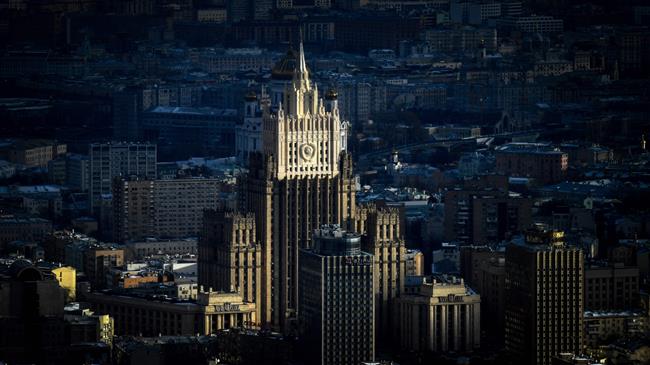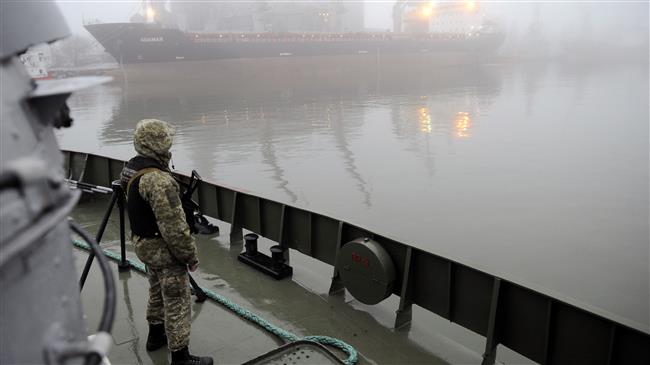In Serbia, Putin blasts West's destabilizing moves in Balkans
Russian President Vladimir Putin has censured Western countries and their allies in the NATO military alliance for actively seeking to destabilize the Balkans.
Putin made the remarks as he visited Serbia in a trip aimed at cementing ties with the Balkan country, which seeks to become a member of the European Union (EU).
Following his arrival to a jubilant red-carpet welcome in Belgrade on Thursday, Putin insisted on his intent to back moves to maintain calm in the neighboring region, a day after accusing the West of undermining the Balkans through efforts to expand membership in the US-led military alliance.
"Russia, like Serbia, is interested in a situation in the Balkans remaining stable and not dangerous," Putin said during a joint press conference with his Serbian counterpart, Aleksandar Vucic, who praised the growing partnership between the two sides.

He said Western countries had made efforts to secure their dominance in the Balkans by absorbing Montenegro into NATO and also seeking to bring Macedonia into the Western military alliance.
"The policy of the United States and certain Western countries aimed to foster their dominance in the region constitutes a major destabilizing factor," Putin said in an interview with two Serbian dailies published last Wednesday.
The Russian president further said then that in Macedonia "last year, the process of adoption of constitutional amendments, renaming of the country, and revision of fundamentals of the Macedonian national identity was launched in the Republic of Macedonia for the purpose of accelerating its inclusion in NATO."
He pointed out that while the West leads wrong policies in the Balkans, Russia "knows and understands the complexity of the Balkans and history of the region."
Putin also underlined that Moscow "has always viewed (the Balkans) as a space for constructive cooperation. So Russia has many friends here today, and the strategic partner Serbia holds a special place."
"In 2017, Montenegro was drawn into NATO in disregard of the opinion of half of its population," he added. "They did not dare to hold a relevant referendum. The country is going through a period of political instability as a result."
Despite Moscow’s strong opposition, Montenegro joined NATO in 2017 while Macedonia is trying to settle its name dispute with Greece in order to join the alliance.
Prior to his visit, the Russian president – who is leading a powerful delegation in a bid to cement ties with Serbia – also pledged to continue expanding military and technical collaborations with the Balkan nation and condemned the EU's handling of breakaway Kosovo.
Putin had expressed surprise at the EU's "passive" reaction when Kosovo announced in December it was transforming its 4,000-strong Kosovo Security force into a regular army, especially since Serbs in the partially-recognized republic view it as a direct threat to their security.
Despite its efforts to join the European Union, Serbia remains a close Russian ally, and about 21 deals are due to be signed between the two countries, including on energy and defense.
Putin was cited in press reports as describing Serbia as “Russia’s strategic partner,” further pointing out that Moscow respects the Serbian decisions about its future ties with the EU and, unlike the West, it does not try to force Belgrade to choose between Russia and the Europeans.
His stopover also came amid the long-running EU-led talks to normalize ties between Serbia and Kosovo, which have proved unsuccessful and appear to be stalled.
Speaking during the visit, Vucic emphasized that "Without Russia... it is clear that there will be no solution" over Kosovo.
Putin's visit was celebrated on the streets of Belgrade by tens of thousands of Serbs, who marched through the streets of the nation’s capital.
VIDEO | Yemenis praise the military for its successful operations against Israel
VIDEO | Israel continues to bomb Gaza homes
VIDEO | An insider's view of the country: Meybod City in Yazd
‘All wars have rules. All of those rules have been broken’ by Israel
VIDEO | Report flags India’s violation of rights of Rohingya detainees
Turkey's foreign minister meets Syria's de facto leader in Damascus
VIDEO | US Syria plots
'Next to impossible' to rescue patients from Gaza's Kamal Adwan Hospital: Director














 This makes it easy to access the Press TV website
This makes it easy to access the Press TV website